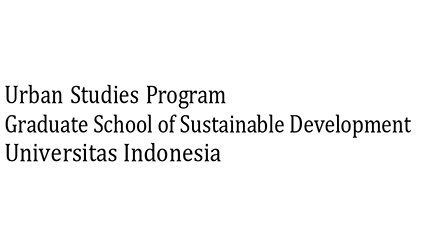Aims & Scope
Cities and Urban Development Journal (CUDJ) aims to contribute to strengthening urban studies in developing countries by connecting researchers and policy makers. CUDJ accepts original manuscripts from both research and literature review in the urban field. The scope of journal areas includes:
- Urban Studies, Development;It is an interdisciplinary field that explores the interplay between urban planning, infrastructure, housing, and the cultural fabric of communities including health to understand the challenges and opportunities associated with urban development.
- Urban Archipelago (Island, Ocean Settlements);The concept of an urban archipelago envisions a network of interconnected urban islands or ocean settlements. these dispersed urban nodes, akin to islands in an archipelago, are designed to promote sustainable living, efficient resource management, and resilient infrastructure in the face of environmental challenges. It encourages the creation of self-sufficient, ecologically conscious communities, fostering a harmonious relationship between settlement development process or urbanization and the surrounding natural environmental changes.
- Urban Economics (Finance, Macro and Micro Economic, Demography, Tourism);Urban economics is a branch of economics that delves into the financial intricacies of cities, examining the interactions between various economic factors within urban environments. This field encompasses both macro and microeconomic aspects, addressing issues such as local government finance, land use, and the allocation of resources in urban areas.
- Urban Social Studies (Anthropology, Sociology, History, Heritage and Culture, Education, Community Development);Urban social studies is an interdisciplinary field that draws from anthropology, sociology, history, heritage and culture studies, education, and community development to comprehensively analyze the social fabric of urban areas. It investigates the intricate relationships among diverse populations, exploring how historical narratives, cultural heritage, and educational structures shape urban societies.
- Urban Health (Health, Lifestyle, Safety, Disaster);Urban health is a specialized field that focuses on the intersection of health, lifestyle, safety, and disaster preparedness within densely populated urban areas. It addresses the unique health challenges associated with urban living, considering factors such as air quality, access to healthcare, and the impact of lifestyle choices on well-being.
- Urban Sciences (Urban Settlement, Facilities, Infrastructure, Transportation);Urban sciences is a multidisciplinary field that employs scientific methods to analyze and enhance various aspects of urban settlements, including facilities, infrastructure, and transportation systems. By integrating technology and analytics, Urban Sciences seeks to optimize urban facilities, infrastructure development, including transportation systems to enhance the overall quality of life in cities and its surroundings that linkages to other regions.
- Urban Security (Defence, Security and Justice, Terrorism, Criminalities);Urban security is a critical domain encompassing defense, security and justice systems tailored to safeguard urban environments from threats such as terrorism and criminal activities. It involves the strategic coordination of law enforcement, emergency services, and intelligence agencies to maintain public safety within urban settings.
- Urban Spatial and Architecture (Planning and Spatial, Design and Art);It is integrated sciences and application of planning, spatial organization, design, and art within urban environments. It involves the strategic arrangement of spaces and structures in cities to optimize functionality, aesthetics, and the overall quality of urban life. So urban design and architecture includes urban form, building design, and art. Meanwhile, spatial studies include technology and innovation, smart cities.
- Urban Environment (Climate, Thermal Comfort, Green Cities, Blue Cities, Water);Urban environment includes various elements, including the natural physical environment, biological (animals and plants), population along with social, economic and cultural systems and environmental politics, with a focus on strategic urban problems, including the process and impact of urbanization, community transformation, issues of control and ownership, use and utilization of urban land, government governance and the provision of settlements and city infrastructures which will have an impact on environmental quality, thermal comfort, climate change. The dynamics of the urban environment need to be responded to with an urban framework as contained in the 2030 SDGs and the New Urban Agenda document.
- Sustainable Cities (Energy,Urban Climate and Thermal Comfort, Eco Green Cities);Sustainable cities embody a holistic approach to urban development, incorporating technology and innovation to create environmentally friendly, socially equitable, and viable urban spaces. Sustainable cities prioritize energy conservation and renewable sources, aiming to reduce carbon footprints and promote long-term environmental health. It focuses on creating energy-efficient and inclusive living spaces, fostering a balance between urban growth and environmental stewardship for the benefit of present and future generations.






